


The magazine of UEA’s philanthropic community ISSUE 6 ∙ 2024-25
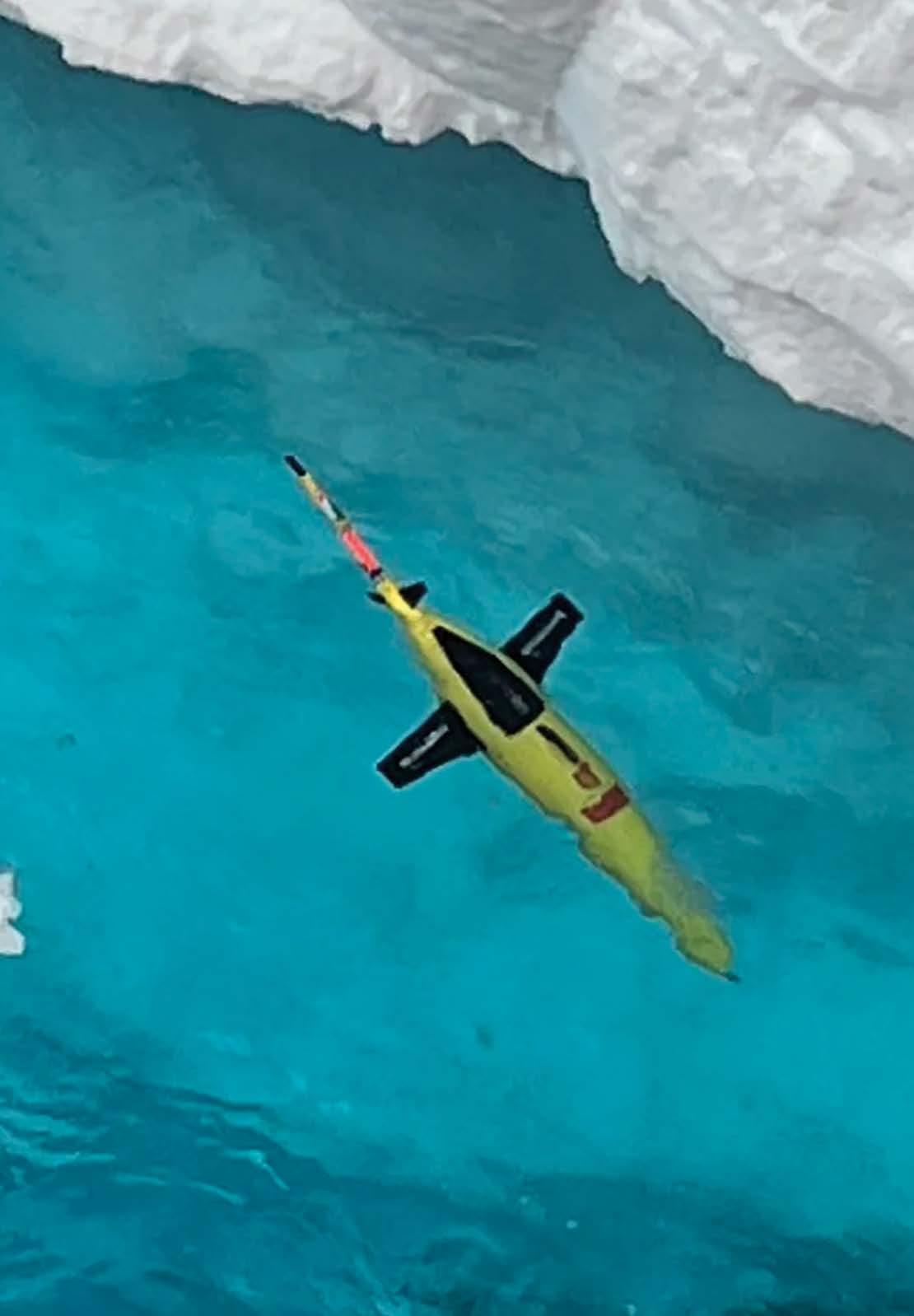




The magazine of UEA’s philanthropic community ISSUE 6 ∙ 2024-25

Sixty years ago, a visionary group took the first step on a remarkable journey by forming the University of East Anglia.
Since then, many have joined. Some, sadly, have passed away.
Today, this group stands at a historic milestone.
Sixty years of outstanding teaching, interdisciplinary research and countless achievements lie behind us.
Ahead, we have a clear path for the University’s future. UEA Strategy 2030, which has been published this year, will lead us to solve the challenges of our changing world by working together sustainably.
Of course, this vision is only possible with the support of generous people like you – our philanthropic community.
Over the coming pages, enjoy stories of the difference you make, our anniversary celebrations and more on Strategy 2030.
I sincerely hope you will join us for our bold next chapter.
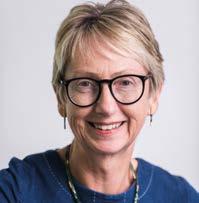
Dr Sally Howes OBE Chair of Council, University of East Anglia

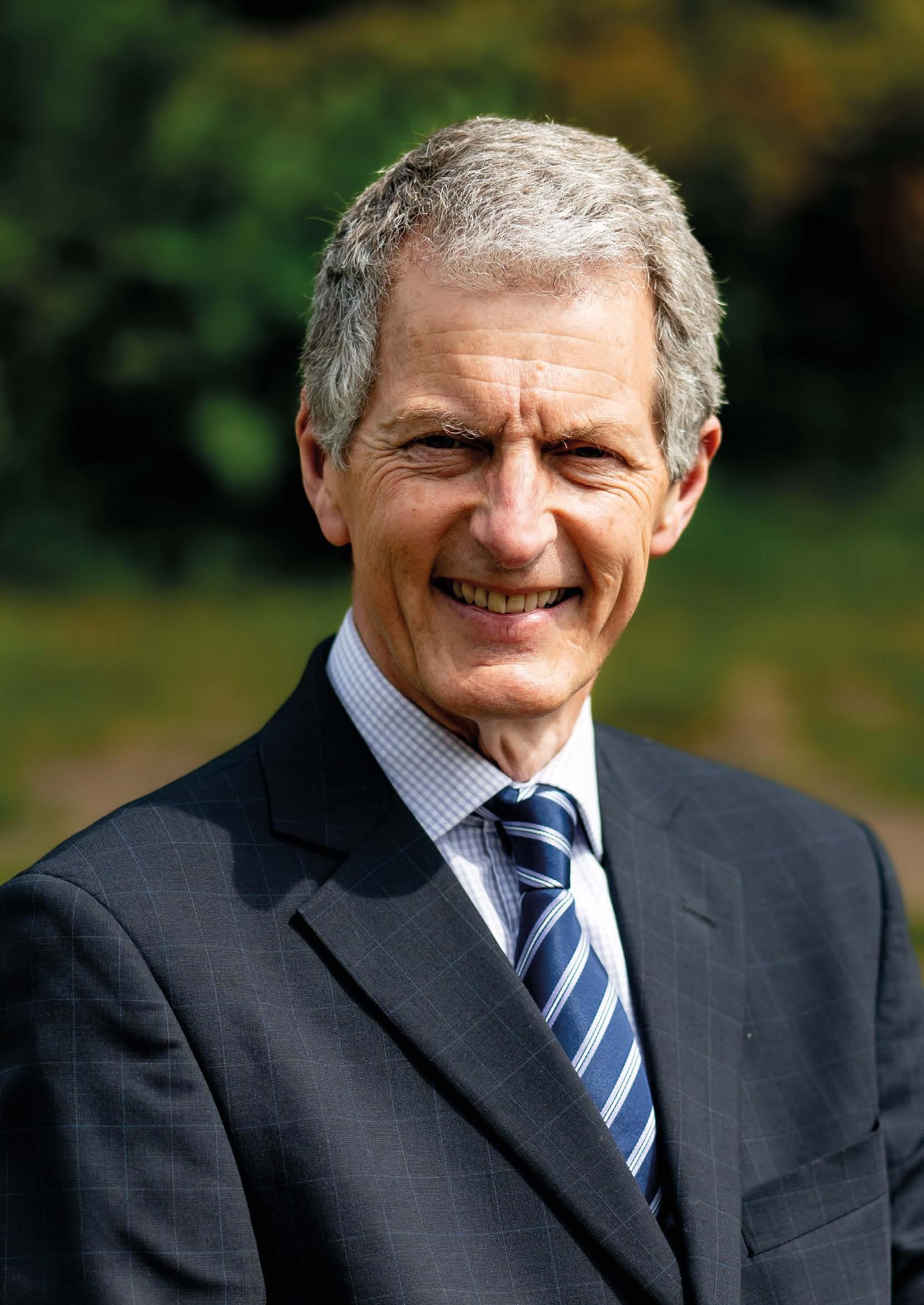
Professor David Maguire, UEA’s Vice-Chancellor and President, shares his view of the future University.
ince our founding in 1963, UEA has evolved into a globally recognised, research-led institution. As a dualintensive university, we are renowned for delivering top-tier education whilst conducting world-class research within a distinct and vibrant campus culture.
We’re building on 60 years of success, access, and excellence, and – looking ahead – we will apply all UEA’s talent and resources towards solving the challenges of our changing world.
Our commitment to ‘do different’ is not just a motto; it drives us to challenge conventions, push boundaries, and pioneer novel solutions to complex problems.
Extending beyond the academic, it embraces the vibrant strength of our community, our picturesque campus location and the rich cultural heritage of Norwich, our own ‘fine city’. These elements combine to form the essence of who we are as a destination for students: a forward-thinking global university with community at our core. Unique appeal.
Rooted in a tradition of philanthropy, the origins of UEA reflect a spirit of generosity that has now spanned several generations. From expanding access to quality education
through student scholarships to enabling groundbreaking research in our acknowledged strengths of climate, creativity, and health, philanthropy has played a vital role in our collective success. It will continue to be ever more integral to UEA’s bright future.
These strengths remain core to UEA’s Strategy 2030, which redefines our mission and vision for the future. Three priority areas are at the centre of the strategy: research and innovation, student education and experience and organisational development. Central to our vision is a commitment to environmental, social, and economic sustainability.
Launching our strategic vision for 2030 is not merely a milestone but a blueprint for our next chapter. It challenges us to embrace change, think boldly and pursue excellence in all we do.
As we chart a course for the future, we recognise that delivering on our vision will not be fully realised without the ongoing support of our donor community.
We sincerely appreciate all your support, which has contributed enormously to the remarkable achievements of the first sixty years at UEA and will underpin much vital progress in the years to come.

Professor Karen Heywood OBE recently returned from a groundbreaking climate research expedition to Antarctica.
s I reflect on the remarkable journey of the PICCOLO cruise (Processes Influencing Carbon Cycling: Observations of the Lower limb of the Antarctic Overturning), it feels like unravelling a narrative as profound as the oceanic depths we explored. This expedition, led by climate researchers from the University of East Anglia, journeyed to the Antarctic to study the crucial processes that control carbon cycling in the Southern Ocean. The story of our adventure featured great scientific achievement, as well as human spirit and collaboration in one of the planet’s most inhospitable environments.
We set sail aboard the RRS Sir David Attenborough in early 2024, equipped with the latest technologies and cutting-edge scientific instruments – some of which had never been used in this region before. Our goal was to improve climate models that predict future changes by understanding how carbon dioxide is absorbed by the Southern Ocean.
This research is vital because cold surface waters here absorb carbon and transfer it to the deep, thanks to microscopic marine plants and plankton. This special place has a major role in regulating the entire Earth’s climate. Our journey was not just about collecting data but overcoming the challenges of working in the Antarctic. The Southern Ocean is a formidable place where the cold bites and the winds howl. Yet it’s a beautiful place too. Imagine being surrounded by icebergs that glint under the sunlight and hearing whales blowing as they surface to investigate the ship. Sometimes it felt like living in a painting.
The PICCOLO cruise was the first true test for the RRS Sir David Attenborough, considered one of the most advanced polar research vessels in the world. She passed with flying colours, as we put her various scientific capabilities to work. Throughout our 52-day voyage of 5,650 nautical miles, we faced the u
u elements to gather over 7,500 water samples and deploy technology such as ocean gliders and floats beneath the sea ice. These tools allowed us to study areas that were previously inaccessible and access vital new insights.
Our team of scientists, technicians and crew worked tirelessly, often in shifts that stretched throughout the day and night. The camaraderie aboard the ship was wonderful. Every person on board, and supporting the mission back in Norwich, played a part in the smooth running of this complex operation.
The enthusiasm and dedication of everyone involved made this journey not just possible, but utterly unforgettable.
We were also delighted to recruit 19 additional amphibious research assistants onto our team. A group of seals were tagged and equipped with sensors that will allow us to continue gathering data even in winter when the area becomes inaccessible to humans. As the seals dive for food, they will gather hundreds of seawater profiles that will reveal the pathways of melting glacier water.
In a nod to the future of ocean science, we were also delighted to conduct an intensive study of a single location over 24 hours to learn how the ocean varies in small time and space scales. We concurrently deployed an ocean glider to dive beneath the waves, a free-floating trap to collect particles of biological matter, and made measurements from the ship.
In what we believe was a world first, we also gained permission from the Maritime and Coastguard Agency to launch an autonomous surface vessel called Caravela onto the sea. It will be fascinating to see what the data holds.
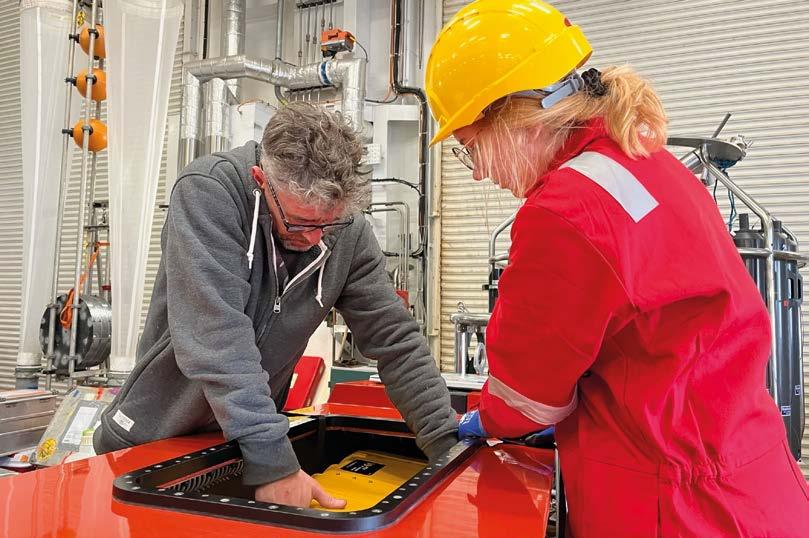



Our autonomous ocean gliders are monitored and piloted by remote operators back on the UEA campus in Norwich. The riskiest part of their mission is recovering the gliders from the sea, when these sophisticated machines are at the mercy of the ice. On one recovery attempt, a glider surfaced for collection when an invisible current began drawing it towards an iceberg. Our ship inched forward to collect it, but its turbulent wake only pushed the glider further beneath the overhanging ice. “Don’t worry,” said our captain, “we’ll just wait.” A few nerve-wracking minutes later, the glider emerged in the open water on the iceberg’s far side. It was safely collected and we sighed in relief.
Despite the challenges, our mission was a resounding success. We achieved all our scientific objectives.
This research is priceless. It will inform policy and continue to help shape the global response to climate change. It puts UEA at the centre of the solutions to an era-defining challenge. To everyone who has supported climate research at UEA, thank you so much.
UEA’s Professor Michael Hornberger is at the forefront of efforts to tackle dementia.
ccording to the World Health Organisation, globally, more than 55 million people live with dementia, a number projected to skyrocket due to our ageing population. Astonishingly, Alzheimer’s Disease International reports that dementia is now the leading cause of death in the UK.
Unlike other diseases such as cancer or heart disease, dementia is the only major cause of death without an effective treatment to prevent, slow, or stop its progression. It’s a sobering reality that one in two of us will be touched by dementia in our lifetime – either by caring for someone with dementia or developing it ourselves.
That’s why UEA researchers are committed to reshaping the landscape of dementia care. They are looking for ways to slow down or cure dementia, as well as examining ways to support individuals in living safely and independently despite the disease.
Under the leadership of prominent neuroscientist Michael Hornberger, Professor of Applied Dementia Research and founder of UEA’s dementia research laboratory, their work offers hope to millions affected by this debilitating condition.
“Seeing my grandmother develop dementia, I saw firsthand the profound impact it can have on individuals and their families,” Professor Hornberger recalls.
“I felt compelled to make a meaningful difference for those affected by dementia and their loved ones.”
Professor Hornberger has developed a suite of on-screen spatial navigation tests that examine one specific process, called ‘path integration’, which is affected by Alzheimer’s. This assessment method is nuanced enough to detect gradual, small changes in cognitive function that would not be identified by typical dementia tests.
“My research is centred around spatial navigation in ageing and Alzheimer’s disease, the most common type of dementia,” explains Professor Hornberger.
“Spatial disorientation, often overlooked, is a common early symptom of Alzheimer’s. u


u We and others have shown that spatial orientation changes precede memory symptoms by 10 to 15 years. We’ve developed widely used tests for those at risk of the disease, potentially predicting future dementia diagnosis before symptoms worsen.
“Detecting the earliest cognitive changes is critical – the earlier one can detect changes, the better we can treat them. Lifestyle interventions have the potential to slow dementia progression, with promising new drugs emerging.
“The most pressing challenge we face is to identify people as early as possible so that we can manage and treat their condition and help people live as independently as possible, for as long as possible.”
One leading piece of research is the DECISION study, which looks at how healthy ageing and neurodegenerative diseases can influence driving behaviour. The findings reveal subtle spatial orientation changes in healthy ageing, prompting follow-up studies (SENSOR and INDICATE) to delve deeper into the relationship between brain changes, blood, and driving abilities in both healthy and Alzheimer’saffected individuals.
“We are investigating how spatial disorientation affects people’s driving and how we can mitigate those changes and provide guidance and support.
“We believe our research will make a significant difference to people with dementia and their carers. Our research on driving is even more important for the everyday function of people and how to keep them independent and safe.”
Professor Hornberger’s collaborative and innovative research approach, grounded in the local community, is moving forward advancements in dementia care and shaping policies to better support individuals affected by the condition.
“We collaborate with various professionals in our field, including computer scientists for data analysis and geographers to study real-world driving challenges,” Professor Hornberger notes.
“Our research leverages innovative technologies to track movements and detect spatial disorientation, ultimately improving dementia diagnostics and treatment while promoting independent living.
Philanthropy
“Our local community’s support has been amazing, and we are connected to many dementia support groups who help us inform and communicate our research findings.
“Our research has already influenced policy, says Professor Hornberger. “The findings from the DECISION study have been presented to a parliamentary select committee on cognition and driving in ageing and dementia. The DVLA as well as the Department for Transport are closely following our research as further findings are likely to inform their future policies.”
UEA’s dementia research will remain a focus within our next major fundraising campaign, due to launch later this year, to support the future research of Prof Hornberger’s NOMaD team in Navigation, Orientation, Memory and Dementia. Philanthropy is set to play a pivotal role in supporting interdisciplinary dementia research, filling gaps where traditional funding falls short.
While it is too soon to point to specific funding opportunities, Prof Hornberger is currently conducting a feasibility study for the use of continuous glucose monitoring with dementia patients. If successful, this could lead to clinical trials to see whether this method could improve monitoring measures for patients with dementia. Our hope is that this work may remove the need for people to remember to check their levels. Improving accessibility for people to self-manage their health may potentially result in a decrease in falls and other complications linked to hypoglycaemia in dementia patients with diabetes.
Another potential area of opportunity stems from UEA’s steadfast aspiration to revolutionise our dementia research facilities. This might include the implementation of a technology-centric laboratory that utilises immersive Virtual Reality and driving simulation.
This controlled setting would empower Prof Hornberger’s team to establish a set of exemplary metrics for driving and navigation, subsequently subjecting them to validation against established measures in real-world scenarios.
“Philanthropy is hugely important for our research,” says Prof Hornberger. “UEA is an exciting place for our future research, which is making an enormous difference to people with dementia and their families.”
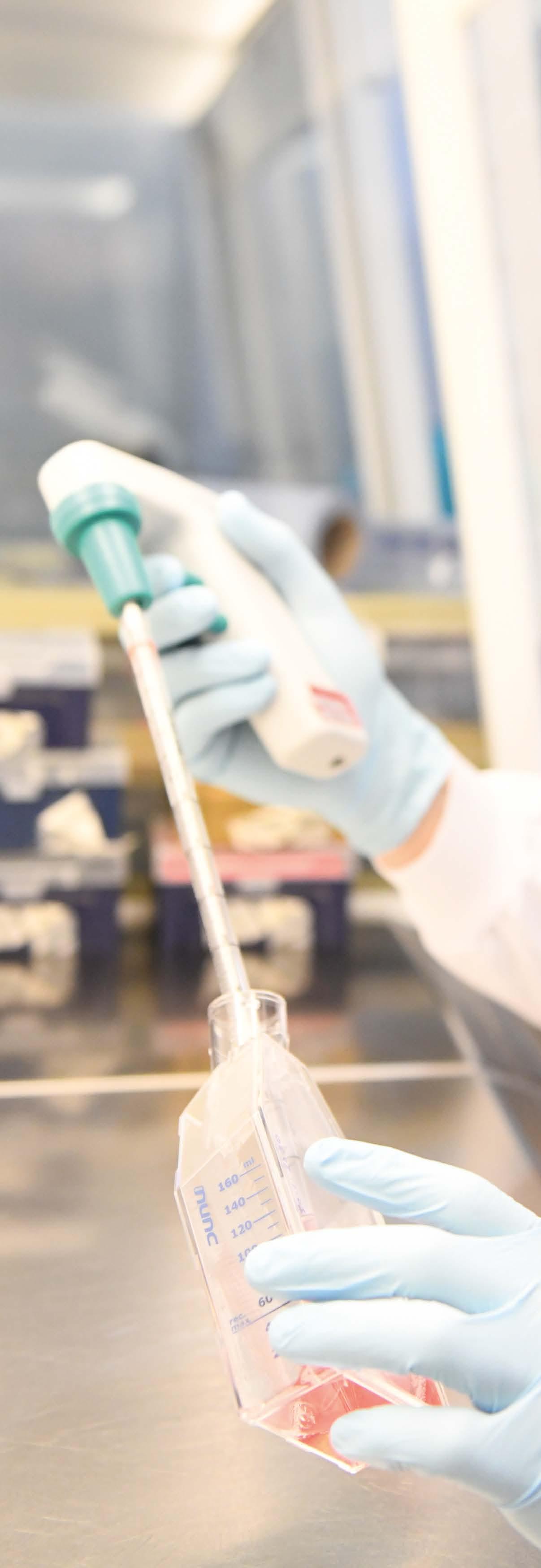
Join us as we look back on some of the most memorable highlights.

â 02 PROMINENT UEA RESEARCHERS RECEIVE THE FREEDOM OF THE CITY OF LONDON
Dr Darrell Green, who leads pioneering research into childhood bone cancer at UEA, and Professor Claire Jowitt, academic lead for The Gloucester (1682) Project, were both awarded the prestigious Freedom of the City of London by the Lord Mayor.
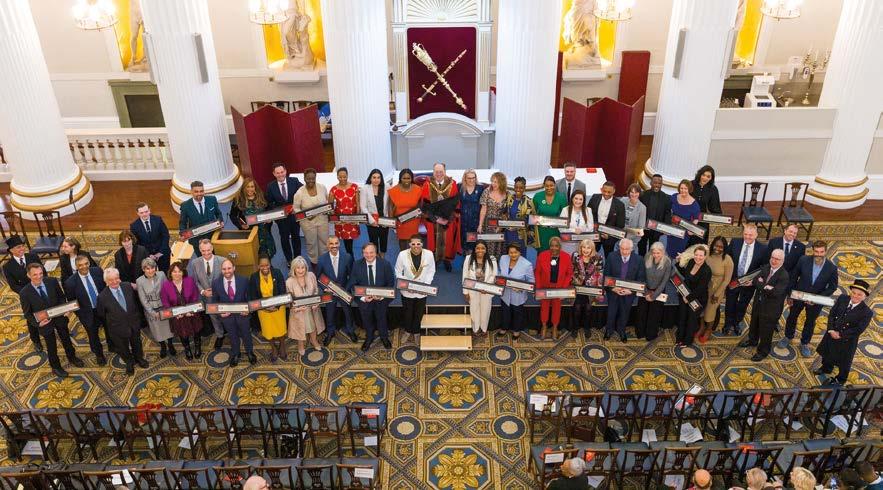
The Gloucester (1682) Project won the Vice Chancellor’s Award for Outstanding Achievement at UEA’s 2023 Innovation and Impact Awards, acknowledging its profound significance. The award was accepted by Professor Sarah Barrow, Professor Claire Jowitt, Dr Ben Redding, Steve Miller, Julian and Lincoln Barnwell, General Lord Richard Dannatt and Lady Dannatt, and David Ellis (pictured). Congratulations to all involved!
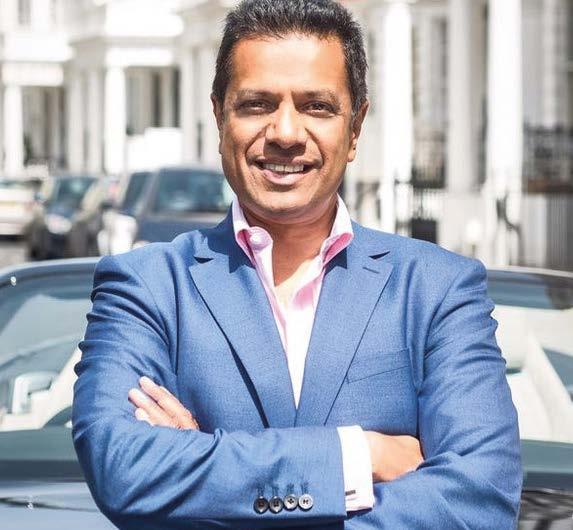
Koolesh Shah (SOC73), Founder of London Town Group and Koolesh Shah Family Foundation, was awarded the prestigious Social Entrepreneur of the Year award at the 2024 GG2 Leadership & Diversity Awards.
Sky Sports conducted an exclusive interview with Professor Colin Cooper on the groundbreaking discoveries within his prostate cancer research lab and the pivotal role of the Bob Willis Fund in advancing his research. One avid cricket fan saw the interview and made a major anonymous donation to Professor Cooper’s research!
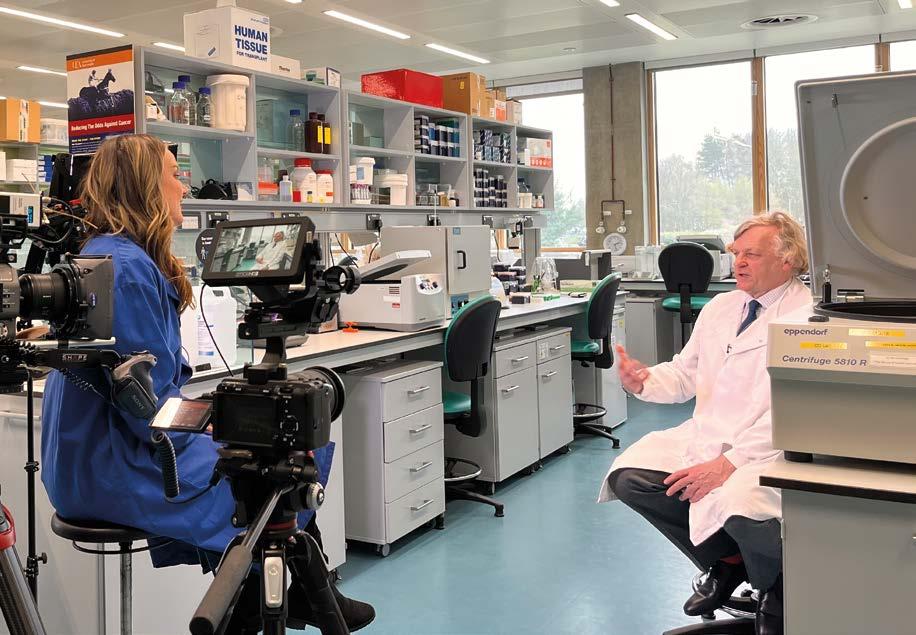
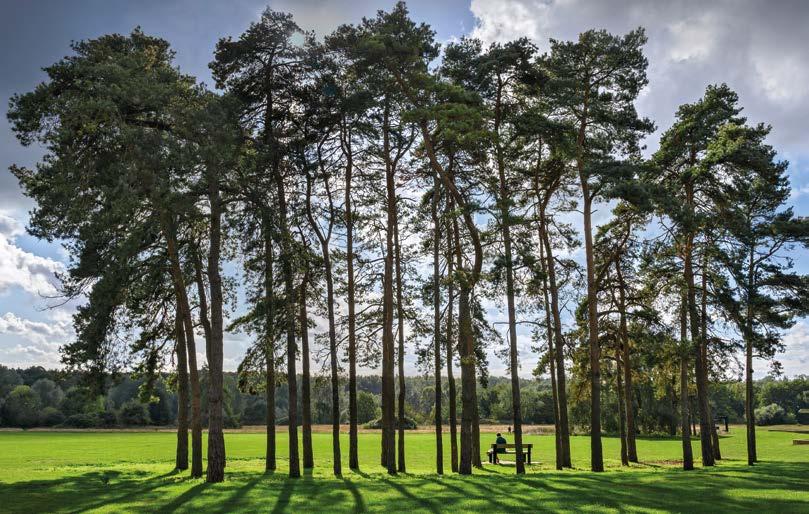
UEA won its seventh Green Flag Award in a row for our environmentally friendly campus. This accreditation was awarded by the environmental charity Keep Britain Tidy.
She was named national winner of the Science and Sustainability Award by the British Council in India. Dr Sukumaran completed her PhD at UEA.

07 UEA’S STATE-OF-THE-ART MRI FACILITY POWERED BY PHILANTHROPIC SUPPORT
It features a cutting-edge MRI scanner funded by UEA, the Wellcome Trust, and the Wolfson Foundation and supports diverse research and teaching, including studies on cognitive decline and dementia. The centre will give students hands-on learning opportunities in fields such as neurosciences and medical research.

Ian Callaghan, UEA’s Chief Resource Officer, explains what’s in store for UEA’s iconic campus.
UEA is a special place for everyone who has ever worked, studied or visited here. I always particularly enjoy walking to the UEA Broad and looking back at the campus. There’s a beauty in the juxtaposition of impressive buildings – such as the Lasdun Teaching Wall and Ziggurats – with the bucolic open water, trees and grasslands.
When designing the University of East Anglia, the vision of its architect, Sir Denys Lasdun, was for buildings to facilitate interdisciplinary learning that would evolve with the University.
Throughout UEA’s first sixty years, features of his original approach have been incorporated into our new buildings. The Science Teaching and Research Laboratories are probably the most prominent of these – interdisciplinarity is part of their very fabric.
As we move into the next sixty years of UEA, Lasdun’s ideas continue to inspire us in ways he could not have foreseen.
The Campus Development Programme (CDP) is a set of guiding principles for our campus in the coming years –one that balances the original campus masterplan with the demands of the future.
The CDP proposals maintain the architecturally acclaimed south-facing façade of the Lasdun Teaching Wall and add a complementary extension to facilitate the use of its first building as scientific research laboratories and best-in-class teaching spaces.
These facilities will follow the original vision for the University – those interdisciplinary ideals – and, for the first time, create a critical mass of science research facilities. This will enable a greater level of collaboration between teams of researchers and deliver state-of-the-art facilities for their groundbreaking projects.
We recognise that a campus primarily designed in the 1960s and 70s has access challenges. To make UEA genuinely
THESE
WILL HELP MAKE UEA GENUINELY OPEN TO ALL .
open to all, these new proposals also include an accessible entrance, which is the first step in full accessibility throughout the entirety of the Lasdun Wall.
We will learn from the recently built New Science Building, where accessibility was a core element of the design and delivery from day one.
Working in a university that has played a leading role in identifying the impact of humans on the environment means we also place great value on the environmental impact of our campus and operations.
The sustainability objectives at the heart of UEA Strategy 2030 call for us to be mindful of the impact of our buildings and present a prime opportunity to reimagine how we use them. The CDP will be key to successfully delivering on these strategic aims.
To date, much of the estates strategy for universities has been to lay down bricks and mortar as student numbers have grown and research has expanded. That’s no longer the case.
Of course, shiny new buildings will always have their place but it’s breathtakingly exciting to see what is possible when we reshape UEA around all that we have learned on our journey so far.
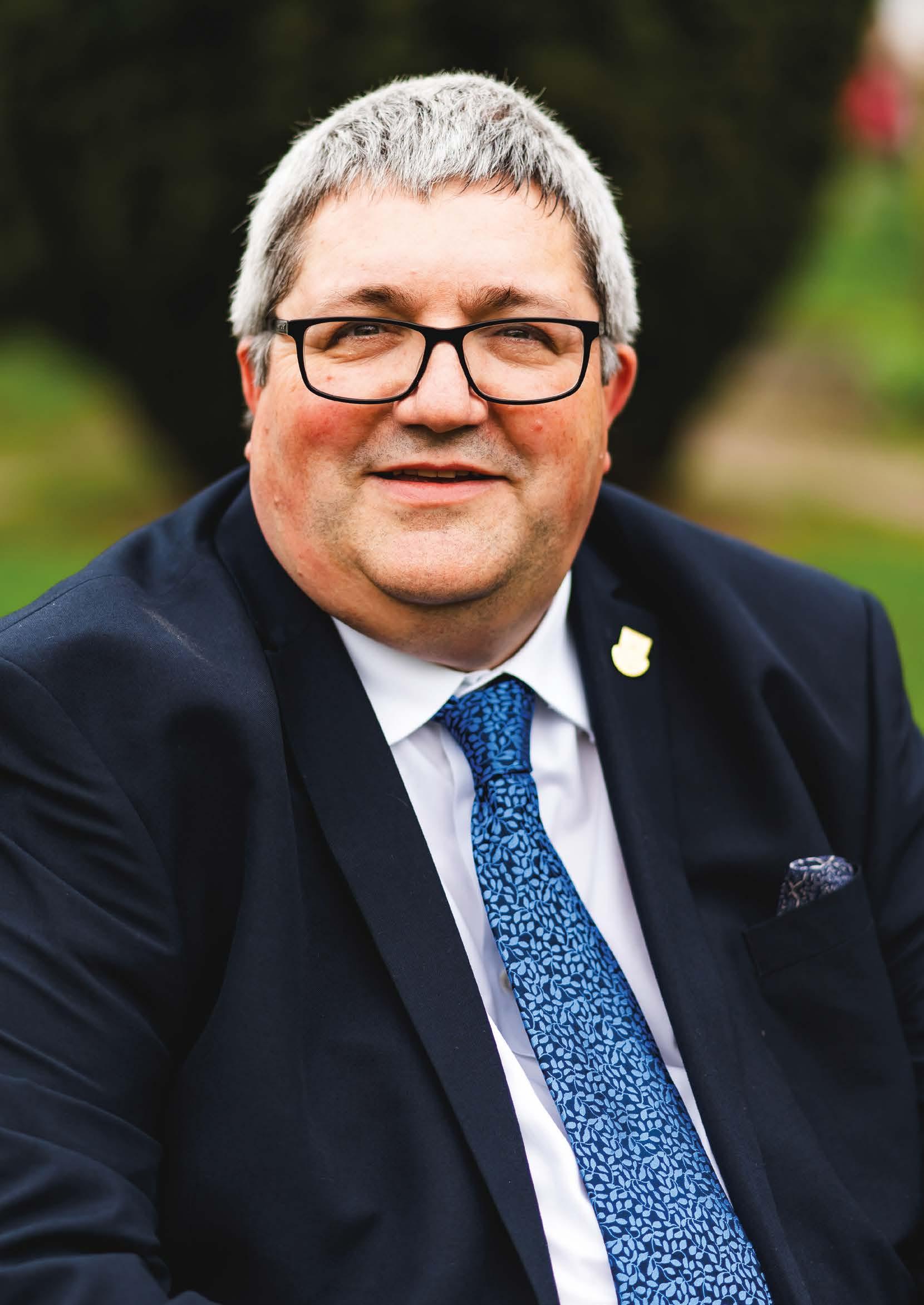
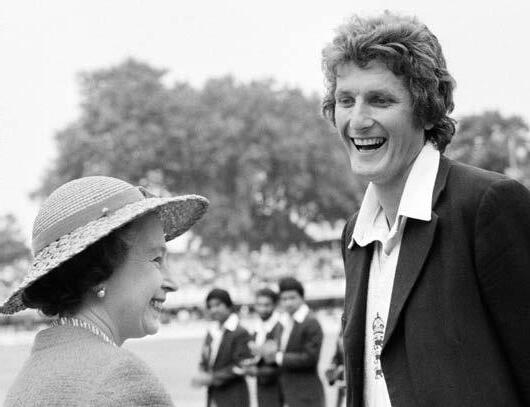
In action at Edgbaston, 1981. With his daughter, Katie. With his wife, Lauren.
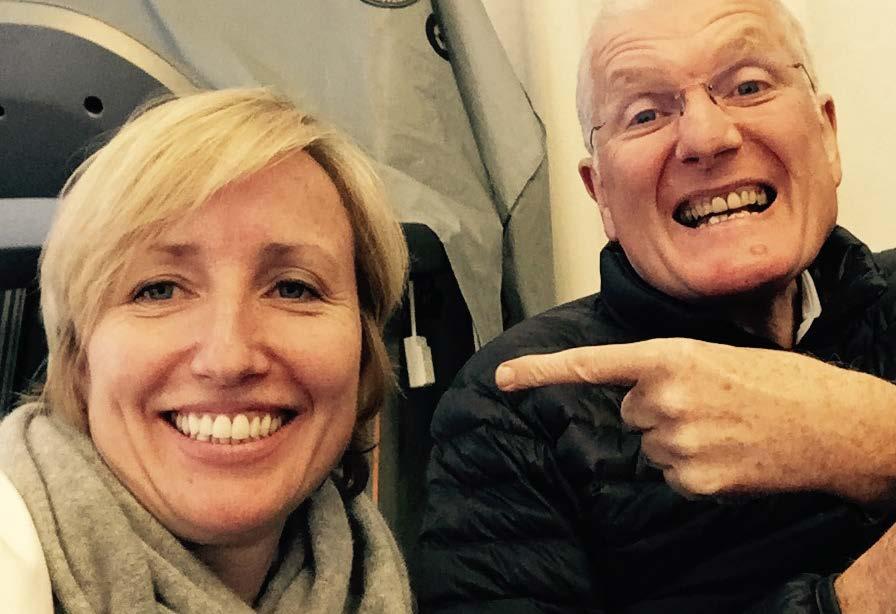
The Prostate Urine Risk (PUR) Test is UEA’s new non-invasive test that indicates whether a patient is likely to have prostate cancer.
Over the past 12 months, UEA researchers have collected samples from 1,000 patients and developed new analysis techniques. Work to extract vital data using specialised NanoString equipment can now begin – an important step before doctors can start using the test to diagnose disease more accurately.
Dr Rachel Hurst, a member of UEA’s prostate cancer research team, and our Alan Boswell Fellow, led a study linking bacteria and prostate cancer, with potentially groundbreaking implications for future treatments. Following their initial 2022 study, she and the team now believe that bacteria are causing prostate cancer. They have developed a biomarker test that identifies those bacteria and designed a clinical trial to test antibiotics as a treatment for prostate cancer.
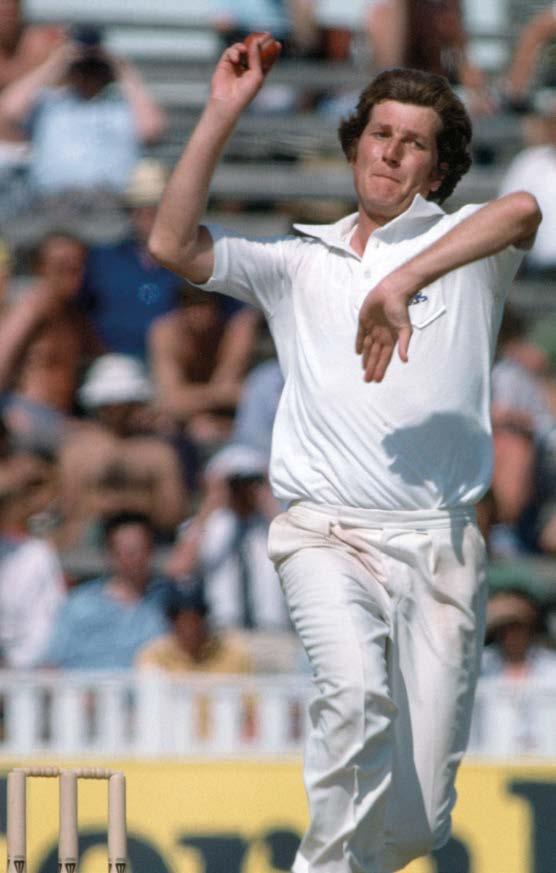
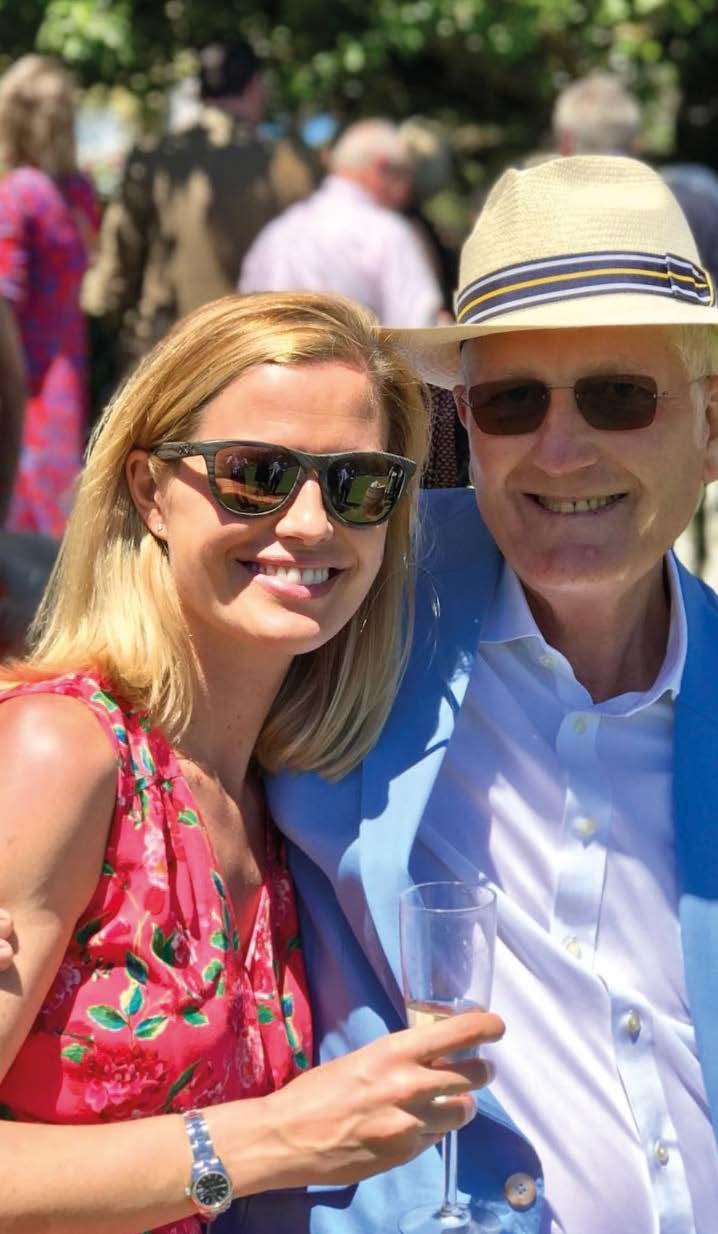

The founders of the Bob Willis Fund on their support for prostate cancer research at UEA.

How did the Bob Willis Fund start?
Losing the most important person in your life changes you. It was traumatic to watch Bob, who we loved so much, disappear in front of our eyes. After he died from prostate cancer in 2019, we wanted to find a way to keep his spirit alive. As a former England cricket captain and hero to so many people, we realised we could put the grief to good use.
What are your goals for the Fund?
Men are reluctant to get tested. Even if they do, the results are unreliable. Bob had a relatively low prostate-specific antigen (PSA) test score on diagnosis. But the cancer had already spread to his bones, yet it took four months to diagnose because his PSA result couldn’t yet show the whole picture.
We love what Prof Colin Cooper is trying to do. A simple urine test that you collect at home will be a game-changer. It fits perfectly with our vision of helping to find something better than unreliable PSA tests. We hope that UEA’s urine tests could eventually lead to a national screening programme. That’s what we ultimately hope to achieve.
What is your approach to fundraising?
We raise money through events at international England cricket matches, such as the ‘Blue for Bob’ day at Edgbaston Cricket Ground, a golf day at Royal Wimbledon Golf Club, where Bob
was a member, and a cinema event at the Olympic Cinema, where he was a founding member. It’s important to us that there’s a solid connection to him in everything we do. We are so grateful to everyone who has generously supported the Fund.
What motivates you?
We know we have saved lives by raising awareness of prostate cancer in the cricket community. After a recent ‘Blue for Bob’ day, UEA informed us that an anonymous donor watching the match had then given very generously to support Prof Cooper’s work. We’ll continue as long as people are keen to support us. We want to develop our relationship as the joint message shared by us and UEA is working so well.
Do you have any reflections about UEA as it turns 60?
Attending an anniversary event in London and hearing about UEA Strategy 2030 was great. Our visits to Norwich Research Park are always inspiring. We believe that Prof Cooper and his team will improve prostate cancer diagnosis and reduce the number of families losing much-loved husbands, fathers, brothers and grandfathers to the disease.
Lauren and Katie Willis
The Bob Willis Fund
We spoke to two pairs of donors and scholars on the profound impact of their giving, and how they are inspiring each other.
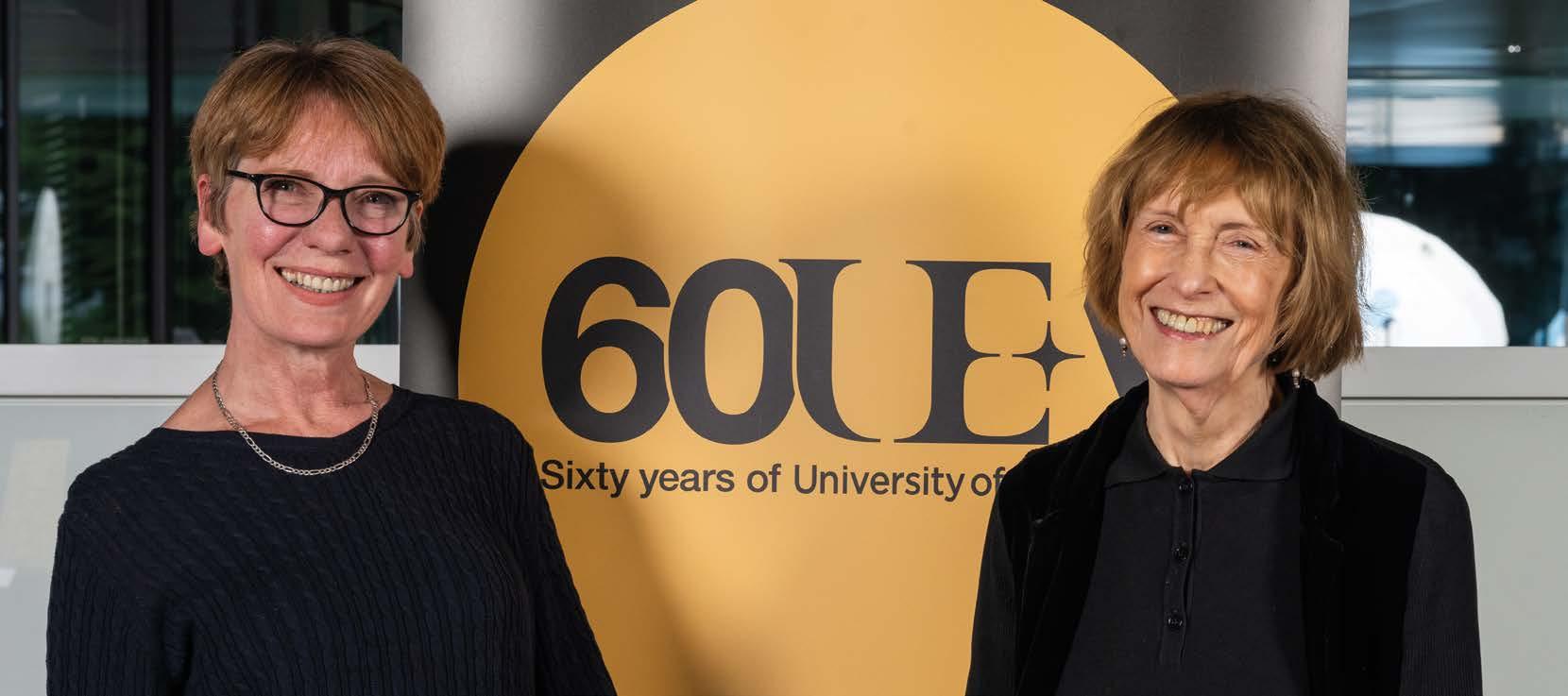
Eric Nichols is the recipient of The American Library Scholarship at UEA, which provides support for US citizens pursuing a PhD. Group Captain Richard Middleton says that the Scholarship programme was started by World War II veterans to honour fallen airmen, strengthen existing Anglo-American connections, and create an American presence in the American Library.
The scholars enrich the library’s service by leading lectures, maintaining a blog, running an American literature reading group and conducting requested research.
Engagement with the American Library has broadened Eric’s perspective, allowing him to work with a much wider variety of collaborators outside his usual research sphere, and explore applications of his research in fields such as World War II studies, aviation, archiving, and culture outreach. “My scholarship has allowed me to interact with professionals from many disciplines, which has helped me find new paths in both my research and in my life. I have been able to help host a variety of interesting events, as well as being a keynote speaker.”
Discussing his research, Eric says, “My PhD focuses on Set Theory, a branch of mathematical logic exploring sets. Mathematics intrigues me for its diverse range of questions, which don’t just pertain to singular objects but to the universe as a whole.
“I have been delighted with my studies so far. The variety of helpful events and support of faculty have made coming to UEA wonderful.”
Group Captain Richard Middleton says there is a lot of satisfaction from seeing scholars thrive:
“It’s fantastic to see our scholars grow in confidence during their time with the American Library and the way they become more and more integrated into the life of the Library and, indeed, the local community. They add tremendous value to the wider library service.
“The programme is rewarding for both the scholar and donor. It is a good way to connect with young people and feel you are contributing to an important aspect of UEA life.”
UEA alumna Maggie Humm (ENG63) is an accomplished author and academic renowned for her work on feminism and modernism. Maggie, a member of UEA’s inaugural graduating class, returned fifty years later to pursue Creative Writing as a mature student. Her journey inspired the creation of the Maggie Humm Scholarship, which supports aspiring writers over the age of 60 in UEA’s MA Creative Writing Prose Fiction.
“When I started the creative writing diploma at the age of 70, it changed my life. I wanted others to have the same opportunity, to discover a new world and connect with different people.”
Kathy Floyd is the first recipient of the Scholarship, and says that she was so inspired by Maggie’s support:
“Receiving the scholarship means a lot to me, and it’s hard to express in words. When I learned about Maggie and her impressive achievements, I was so inspired that she wanted to support me. It wasn’t just about the financial support; it was about having someone backing me up – having that backing gave me a sense of confidence and support that I hadn’t felt before.”
After completing a Return to Learn bridging course at UEA, Kathy was inspired to study an undergraduate degree, with her scholarship allowing her to stay on for her Masters. Kathy said she was always drawn to creative writing but wasn’t able to access higher education until later in life.
“I used to love writing at school – I went to the secondary modern school in Great Yarmouth – but I came from a single-parent working-class family, and education wasn’t something that was readily available to me. Despite this, I always had a passion for writing.”
Maggie and Kathy believe their paths were destined to cross, as their life journeys mirror each other’s. Maggie began her UEA studies in 1963, the year the university was established, while Kathy was born just a year earlier, in 1962.
“It’s amazing how our timelines align,” Kathy reflects.
“It feels like destiny.”
Thank you to Eric and Kathy for sharing their scholar stories, and to both Richard and Maggie for your generous support. Your contributions have made a profound impact, shaping the paths of these scholars and inspiring them to soar.

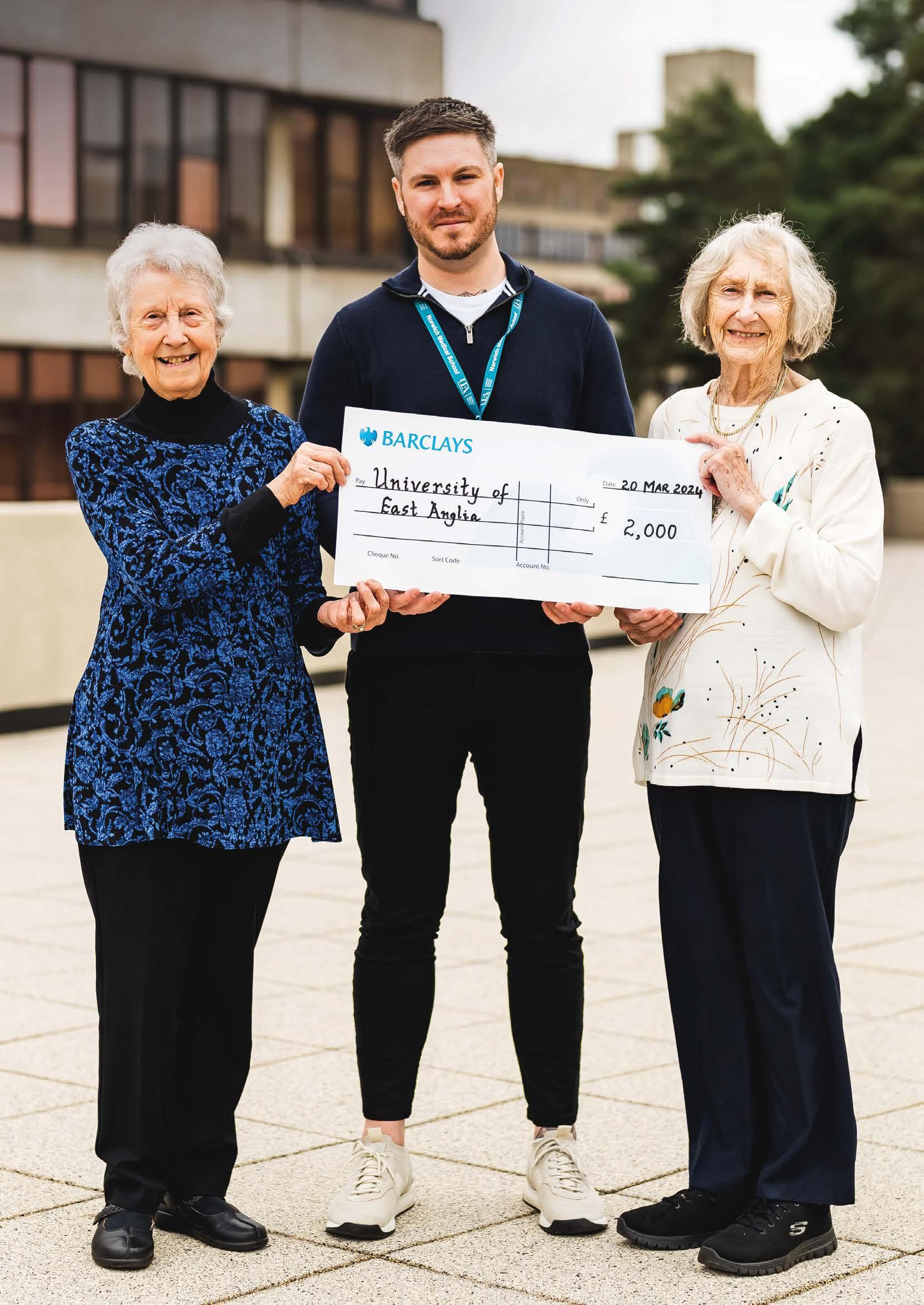
Margaret Doggett received a UEA Honorary Fellowship in 2005 for her fundraising efforts.
Istarted fundraising for UEA 32 years ago. I wanted to support causes local to me and I’d seen the University on television. I rang Dr Ian Gibson, who was the Dean of the School of Biological Sciences at that time, and he turned up to give me posters for a fete. After we raised our first £100, he asked if we could “make him some more”.
I love doing it, especially with my friend Molly Blackburn. When we’re out raising money, lots of people come and give us hugs and thank us. You get so much gratitude from people, which keeps us going. I’ve now lost four members of my family to cancer. I don’t suppose it will be cured in our lifetime, but we’ve helped.
It’s important to me to see where the money goes. When we’re collecting, people often say they want to support a local cause. They know where the University is and want to support research based here in Norwich.
I was recently talking to a friend of my sister who was making her will. After I told her about UEA’s cancer research, she left a gift to the lab. She wouldn’t have known about it if we hadn’t had that conversation.
When you support a cause you believe in, it spreads out further than you. Sometimes people you know get involved, like my sister’s friend. Others might not put cash in my tin but send a cheque afterwards. And then I also get told about donations given after we’ve inspired someone.
As UEA turns 60, I think back to my childhood. My parents were quite Victorian in their views – girls should get married, not go to university. I still feel I missed out. Through my fundraising, I feel attached to UEA. I remember someone saying I was part of the furniture now! I’m very honoured to be part of the University.

UEA’s groundbreaking childhood, adolescent and young adult cancer research is developing Bensofib, a new treatment for bone sarcoma that could radically improve the outcomes for children with this rare type of cancer.
In the coming 12 months, PhD student Emma Bull, who is a member of the research group led by Dr Darrell Green (BIO09), will publish in the scientific literature a new method of extracting small ribonucleic acids (sRNAs) from circulating tumour cells in the blood. No established method existed previously for this process, which has proved essential. Her research in 2024-25 will also focus on genetic engineering to modify human bone cancer cells in the laboratory and test them to discover how they speed or slow the spread of cancer. If this work is successful, a future project might be able to target these biological mechanisms, fighting the spread of sarcoma – cancers of the connective tissue such as bone or muscle – with fewer harmful side effects.
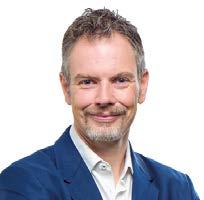
Alumnus Mark Slade (SOC97) shares his motivation for making regular donations to UEA.
Now based far from Norwich in Peru, Mark still feels a strong attachment to UEA and makes a regular gift towards The Difference scholarship every month. This scholarship programme provides financial support for academically excellent students, helping to make it possible for them to access the same top-quality education that allowed Mark to thrive.
Mark’s deep-rooted connection to UEA fuelled his drive to become a regular donor:
“A quality education has been the single most important stepping stone in my life.
“I arrived as a fresh-faced 18-year-old and left four years later with confidence, lifelong friends, and a master’s degree that was my entry ticket to a career that I could not have imagined. Honestly, I cannot think of another experience that has given me as much as my time at UEA.
“I took my time to ease into my studies! At the end of my first year, I was on track for a Third. By the end of my second year, I was somewhere between a 2:2 and 2:1. And, by the end, I walked away with a First. Except that I didn’t really walk away. I chose to remain at UEA to study for my Master’s.”
Mark encourages potential donors to start small and that even modest contributions really add up.
“If you’re reading this, then you too share a special bond with UEA! What better way to cement that bond than via a regular contribution? The key for me was committing to modest monthly contributions, via a painless direct debit.”
As UEA celebrates its 60th birthday, Mark continues to be impressed by UEA’s ability to take a leading role across academic and research excellence:
“I like to think of UEA as the university that punches above its weight. UEA has always been a leader in important and innovative subjects, like climate change.
“I’ve always liked the simplicity of the UEA motto ‘do different’. To me, it speaks to a commitment to innovation and nontraditional approaches, and encourages students to pursue new ideas.”
Mark’s regular gifts mean more students can attend UEA, benefiting from the same high-quality education.
“Education is a superpower. By contributing to the scholarship programme, I can do my bit for someone who may be concerned about the cost. Nobody with talent should be forced to miss out for financial reasons.”
Thank you to Mark and to everyone who gives regularly – your contributions open up new opportunities for students, shaping their futures and broadening their horizons.

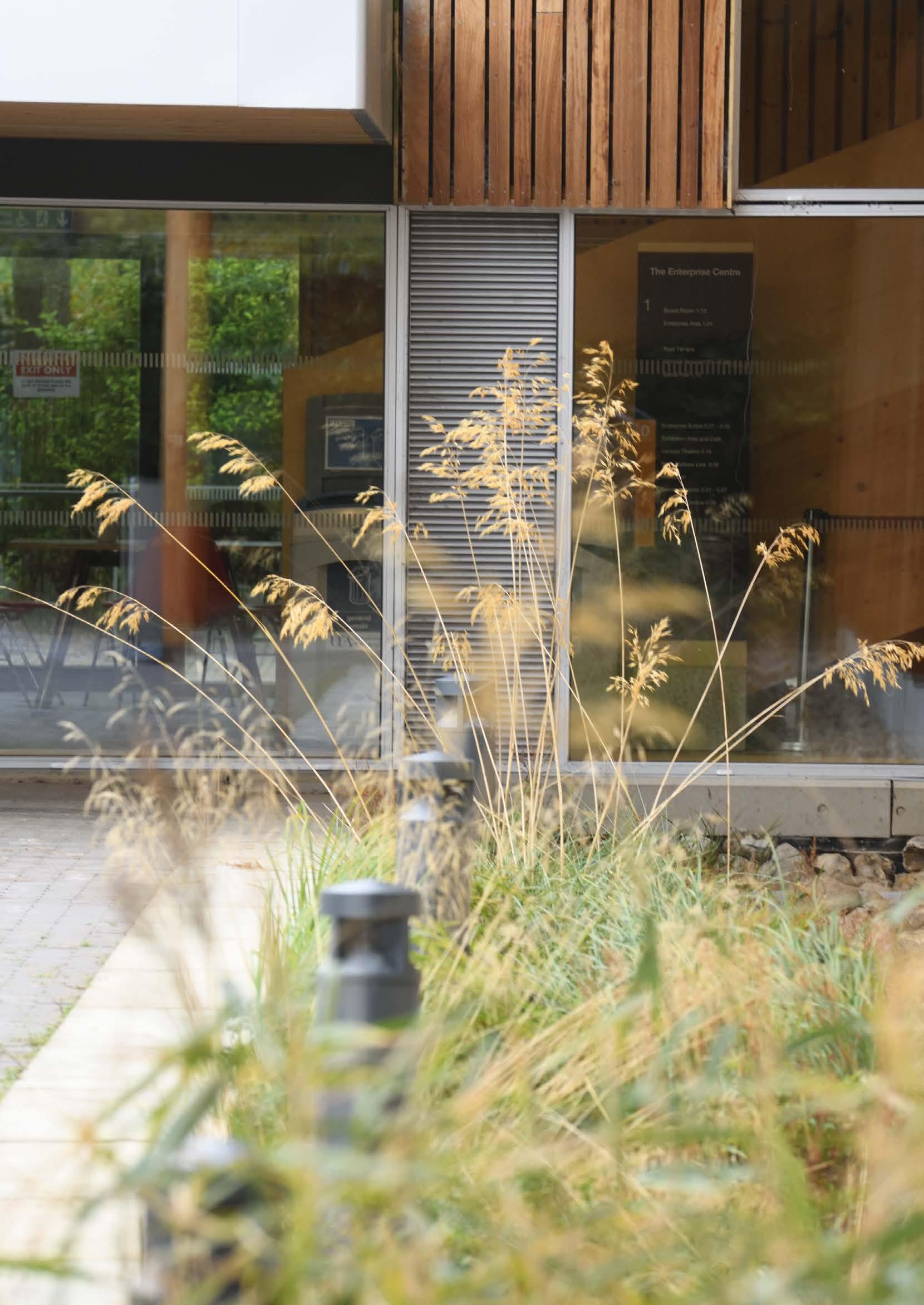

The UEA Student Enterprise Fund helps our students and recent graduates bring promising business ideas to fruition. The fund offers support, including funding and mentoring, to budding entrepreneurs, helping them turn great ideas into commercial success.
Panellists Matt Legon and Rita Dhut, each with a unique background, share common traits –their business acumen and their desire to put their expertise to good use by nurturing the entrepreneurial ambitions of others.
Stepping into the world of entrepreneurship often requires a blend of courage, passion, and a dash of inspiration. For Matt Legon (MGT02), the founder of premium Norwich brand GNAW Chocolate, this journey began as a challenge to explore his entrepreneurial spirit.
“After graduating from UEA in 2002, I embarked on a career in investment banking.
However, I yearned for something more, something that would allow me to carve my own path.”
In 2010, he took the leap and returned to Norwich to pursue his dream of starting his own business, GNAW Chocolate.
“UEA made me into the confident, driven person that I am today. It instilled in me a belief that whenever there is a problem, particularly in business, there is always a solution if you are willing to find it.”
Matt was invited to be involved with the Student Enterprise Fund in its very early stages, and he is proud of the amount of help and support that has been provided to hundreds of businesses and social enterprises during that time.
“The Enterprise Fund aims to make UEA the most enterprising university in the country. u
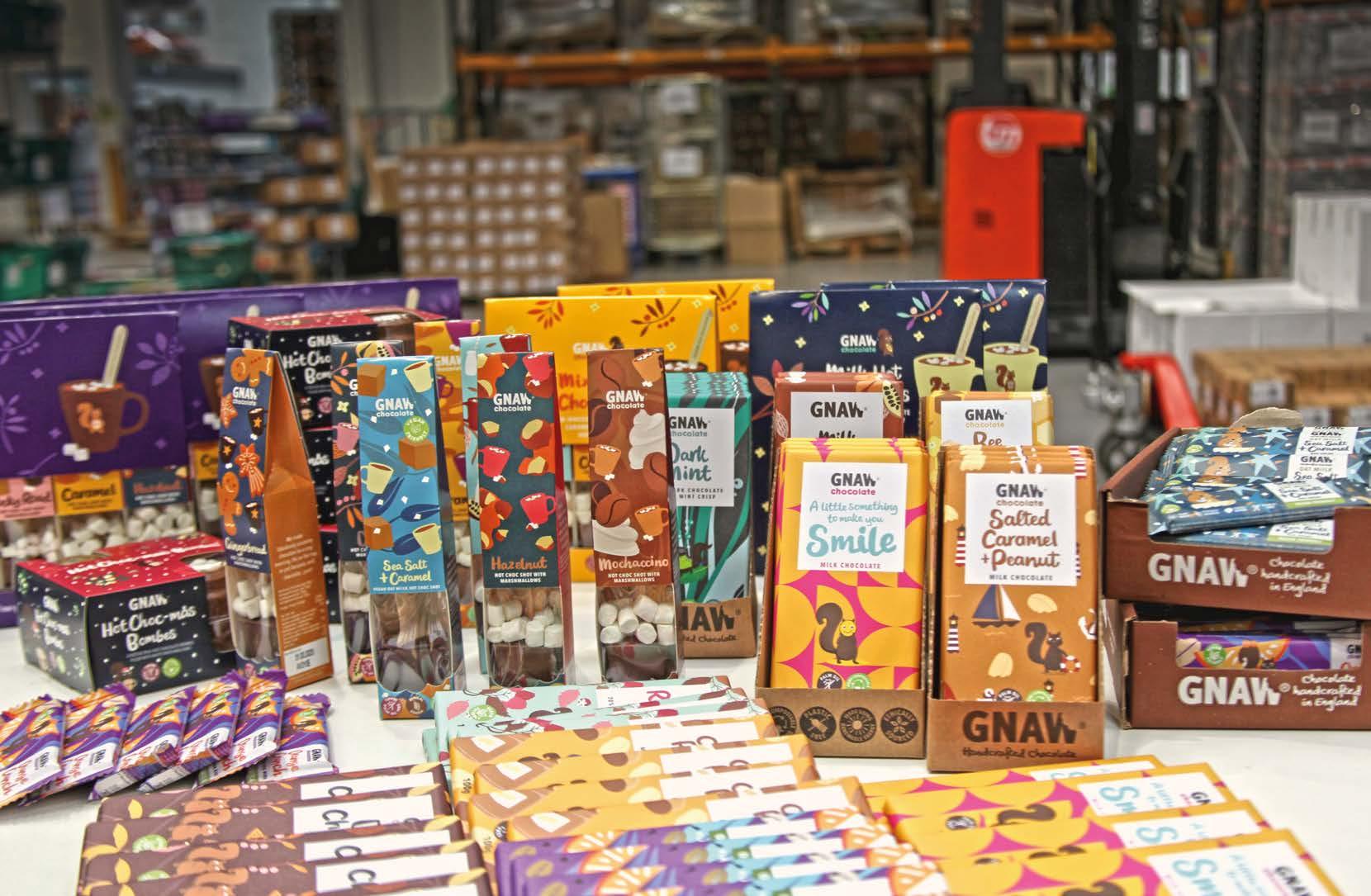
u A place where students with great ideas and a passion for building a business can come for support, mentoring and some startup capital.”
Looking ahead, Matt envisions a future where universities serve as incubators for innovation and entrepreneurship, empowering students to pursue their dreams and reshape the business landscape.
“UEA is a truly wonderful place to be and to grow. I am grateful for the opportunities it gave me, hence why I am giving back.
“I am hugely passionate about helping fledgling companies achieve their goals and aspirations, and being a part of their journey is a privilege for me and something that I am immensely proud of.”
Rita Dhut, an investment specialist with over two decades of experience in the field, brings a wealth of knowledge and a passion for supporting young entrepreneurs to the Enterprise Fund panel.
“I started investing in public stock markets at the age of 15, so you could say it’s in my blood. Armed with that enthusiasm I became a fund manager. It was a job I did for over 20 years at large City institutions, rising up the ranks.”
Rita’s husband is a UEA graduate, and they both maintain a close connection with the University. Her transition into early-stage venture investing and involvement with the UEA Student Enterprise Fund was a natural progression driven by her desire to give back.
‘Talent is everywhere, but opportunity is not’ is a quote that resonates deeply with Rita.
“Providing tailored encouragement and support in the right environment can allow people to thrive and improve society regardless of whether the underlying motive is commercial or non-profit.”
As a Student Enterprise Fund panellist, Rita looks for qualities like determination, drive and humility in student entrepreneurs.
Rita urges young entrepreneurs with promising ideas to be bold and fearless in chasing their dreams.
“Go for it! Never underestimate the power of serendipity and creating your own luck through learning, research, action and collaboration. It’s only by trying we can succeed, and even failure can mark the start of something great.”

Rita Dhut is an investor and advisor to early-stage companies on boards including JP Morgan European Investment Trust plc.
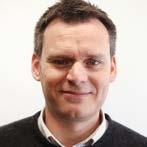
Matt Legon founded GNAW Chocolate, a hugely successful chocolate manufacturer and iconic Norfolk brand.
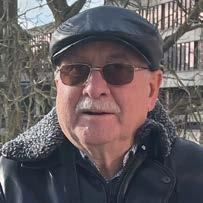
Alumnus Ian Hunter (SOC68) on why he is leaving a legacy gift to UEA in his will.
Tell us a little about your time at UEA.
I studied Social Sciences in the late 1960s and 70s, and we studied a broad range of subjects, including philosophy, economics, sociology, and economic history.
I really embraced the independence and self-directed study that UEA encouraged. I met so many interesting people and gained confidence and a questioning frame of mind. My time at university was a big learning curve, though –it was a fascinating time, but it was also challenging.
What did you learn from some of the challenges you faced?
I think it’s a time in life when you’re learning so many valuable lessons that are helping you grow up and become an adult. Those experiences shaped me and helped me find out who I am. I was joint editor of UEA’s student magazine, CHIPS, and it was a big commitment that eventually started to interfere with my studies. I was really struggling to juggle all my social, academic, and extracurricular commitments, so I eventually had to step down. Looking back, that was a useful learning experience and helped me see that, at some point, you must find balance in life – it taught me early on a valuable lesson about responsibilities. I took this lesson into my professional life in education.
Why did you decide to pursue a career in the education sector?
My father, despite being one of the brightest in his year, had to leave school at 16 when my grandfather’s business collapsed. Despite this setback, he was never bitter because very few from his generation had the chance to attend university. His experience made me realise the importance of opening up opportunities and understanding how the education system works.
I’m always thinking about how we can do something in a better, more effective way, or, in terms of further education, how we can make people’s educational experience more relevant to them and their own learning style.
I SEE THIS AS A WAY TO GIVE BACK AND
Why did you decide to leave a legacy gift to UEA?
It stems from a sense of gratitude for the valuable experiences and opportunities I gained during my time here. I really appreciated my three years here – we were the lucky generation; virtually everybody got a grant and we weren’t burdened with large student loans. As someone without immediate family, I see this as a way to give back and support future generations.
I also want to support students who want to succeed against the odds, like I did. I remember being interviewed by the headmaster as a sixth former, where he made assumptions about me, suggesting I wouldn’t succeed and that I wasn’t serious about my education. Instead of being discouraged, I was motivated to prove him wrong!
What would you say to someone considering leaving a legacy gift to UEA?
I would encourage you to investigate the options available to give back. There’s a tremendous sense of satisfaction in knowing I’m making a positive impact.
Two young authors from the International Chair of Creative Writing workshops share their experiences.

We are delighted to report that several anthologies of creative writing have been published following our unique International Chair of Creative Writing (ICCW) workshops across Africa.
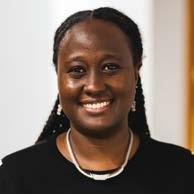
Global Voices scholar and Uganda workshop attendee.
“I feel lucky to have been invited to join the Ugandan cohort of writers for the workshop in Kampala. It was my first time interacting with creative writing experts one-on-one.
I’m now better equipped as a writer.
“Before this, I was writing just for myself. To hear that my story was selected and impressed the workshop leaders enough to name the anthology after it was icing on the cake.
“Following the workshop, I was selected as a Global Voices scholar at UEA. Joining the MA Creative Writing (Prose) has been an incredible experience, one I never thought would be possible before. I now have the confidence to pursue my dream of becoming a professional author, continue writing, and publishing short stories and novels.
“I am determined to share my work with the world. When someone reads my work, I hope they feel seen.”
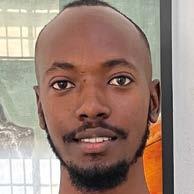
Attended UEA’s workshop in Kenya.
“My name is Charles, but I write as Charlie Muhumuza. That’s what my family calls me and I want to feel at home while writing.
“The workshop was a masterclass in every sense of the word. It was really intense. Seeing the work my fellow writers put in, the seriousness, was contagious. The most valuable thing I gained was community. Meeting people with a collective belief in writing was life-changing.
“Our workshops discussed both Swahili and English stories together. This helped us experience in real time how language reinforces and supports itself. I learned much about craft, but also the discipline of writing.
“There is nothing like seeing your work in print. I grew up on books. When reading stories, the writer’s name and byline would say so little yet fill me with so much awe. Seeing the anthology with our stories was the manifestation of a dream.
“It was a great learning experience. Now I know that writing is my chosen life. There is space and a need for writers in the world and I’m claiming it. I know it’s all possible.”

Renowned author Tsitsi Dangarembga was UEA’s inaugural International Chair of Creative Writing. Tsitsi led workshops across the continent of Africa and inspired new voices in writing, several of whom have subsequently joined the world-famous Creative Writing programme at UEA through the Global Voices scholarships.
One visionary philanthropist generously funded the first year of this project.
Our ambition, when further funding is found, is to appoint future International Chairs to represent Asia, Australasia, the Americas and the Middle East. They, too, will enable many more writers from across the globe.
Tsitsi said, “Creative writing familiarises us with individuals, groups, societies and nations far from our own. I believe that championing global voices and supporting new writers brings new facets of our global humanity to the consciousness of many who live outside the constellation of human beings from whence the writing emerged. This works to disrupt labels such as foreign, unknown or threat, promoting tolerance and increasing the chances of a world in which we live together more peacefully.”
We spoke to some of our generous alumni supporters about what their time at UEA meant to them.
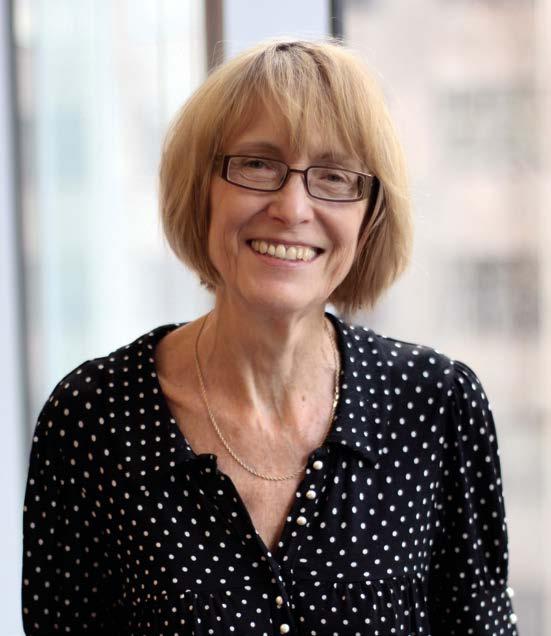
MAGGIE HUMM (ENG63)
Supporter of the Maggie Humm Scholarship
From being part of the inaugural graduating class in 1966 to attaining a UEA/Guardian Diploma in Creative Writing fifty years later, my journey with UEA has been transformative.
GRAHAM PENFOLD (SOC79)
Supporter of the Victor Thomas Penfold Scholarship
Attending UEA in 1979 as a mature student changed me greatly – it gave me confidence and helped me to think differently, not be afraid to challenge flawed thinking and have the tenacity to stand alone, if need be, against others if I believed I was right.

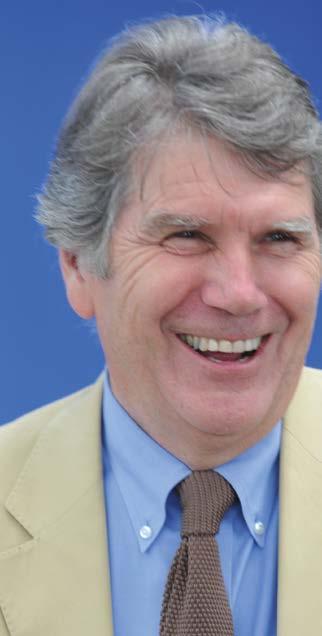

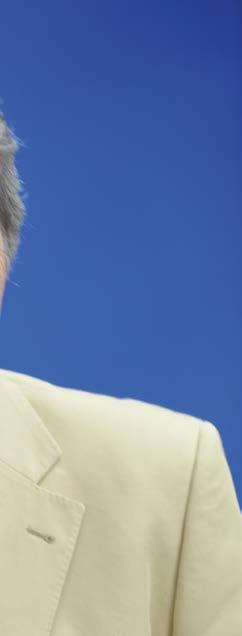
TIM LOVETT (BIO66)
Supporter of The Tim Lovett Fund
ANNABEL ABBS (EAS83)
Supporter of The Annabel Abbs Scholarship
I’ve loved the chance to get reinvolved with my old University, to meet brilliant young minds, and to engage with their work.
I have fond memories of UEA from the 1960s. The teaching encouraged us to embrace independence of thought and to be brave, and the quality of the lecturing was very good – the lecturers were always available. In Biology, we had a fantastic practical schedule, which was the envy of all other universities. What we were learning back then was cutting-edge science.
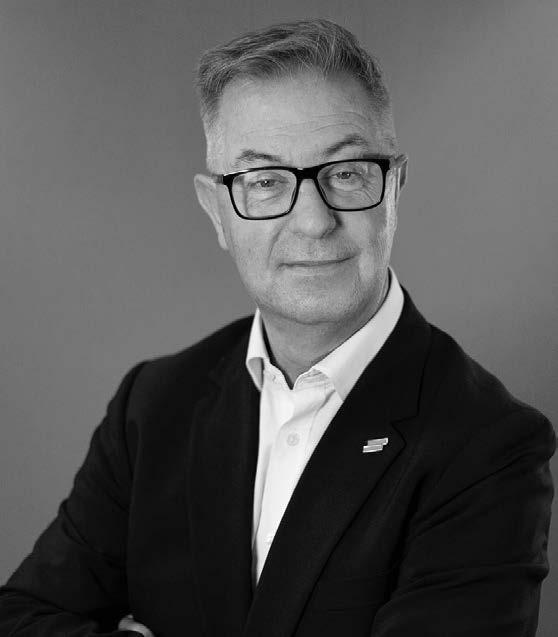
Supporter of The Hynes Family Scholarship
The University was part of a new wave of hope and opportunity for the post-war generations, which I am proud to have been a part of. UEA transformed my life, and I am sure has done the same for hundreds of thousands of others. It’s important, but also fragile.
GEOFFREY PELHAM-LANE (EAS82)
Supporter of The Difference Undergraduate Scholarship
After my father’s sudden passing when I was 16, I became a beneficiary of a scholarship. The Rank Fellowship stepped in and supported my mother in paying my school fees, allowing me to continue my education. This experience deeply affected me, reinforcing my belief in the importance of education and the humanity of the world we live in.
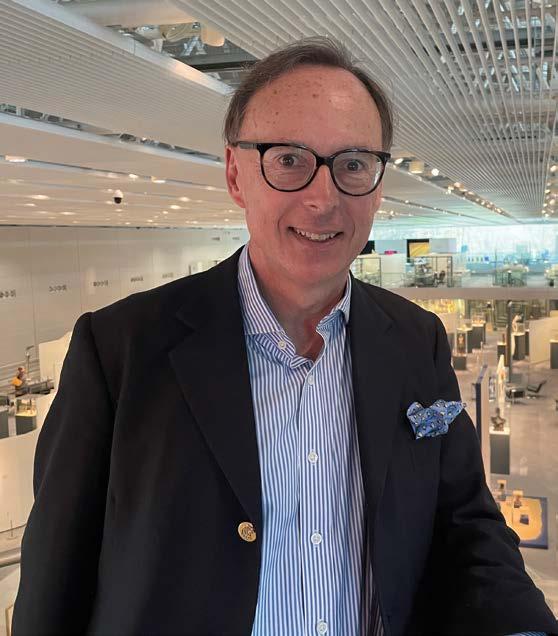
David Ellis (NBS09) reflects on your generosity.
Proofreading this annual magazine has become a special pleasure in my year. An opportunity to reflect on how grants and donations – and those people who give them – have made extraordinary things possible at UEA .
This edition is particularly special, as we take the opportunity to say, “Happy 60th UEA!”
I feel very fortunate to work in an institution where the brightest minds and visionary philanthropists converge. When the two meet, the impact is both immediate and also enduring. It’s no exaggeration to say that the
difference made by our philanthropic community will be felt worldwide for generations to come. And it’s a huge privilege to lead the fundraisers here, very recently joined by our friendly alumni relations staff – now a stronger team than ever.
Following the Vice-Chancellor’s lead, later this year we will launch a major new campaign to support the mission and objectives of the University. We look forward to working alongside donors, colleagues, students and our alumni family to make it the most impactful yet in our short history.
Our deepest thanks go to everyone who has supported the University of
East Anglia at any time since 1963; be they individuals, alumni members, trusts, charities or corporations. You have all made genuine impact possible through your generosity and altruism. And you have changed many, many lives for the better.
Whatever challenges the world faces in the coming years, UEA will continue to be at the heart of finding the solutions. We are all very grateful indeed that you choose to be a part of this great pioneering university striving to better the world we live in.
David Ellis
Director of Development, Alumni and Campaigns, University of East Anglia
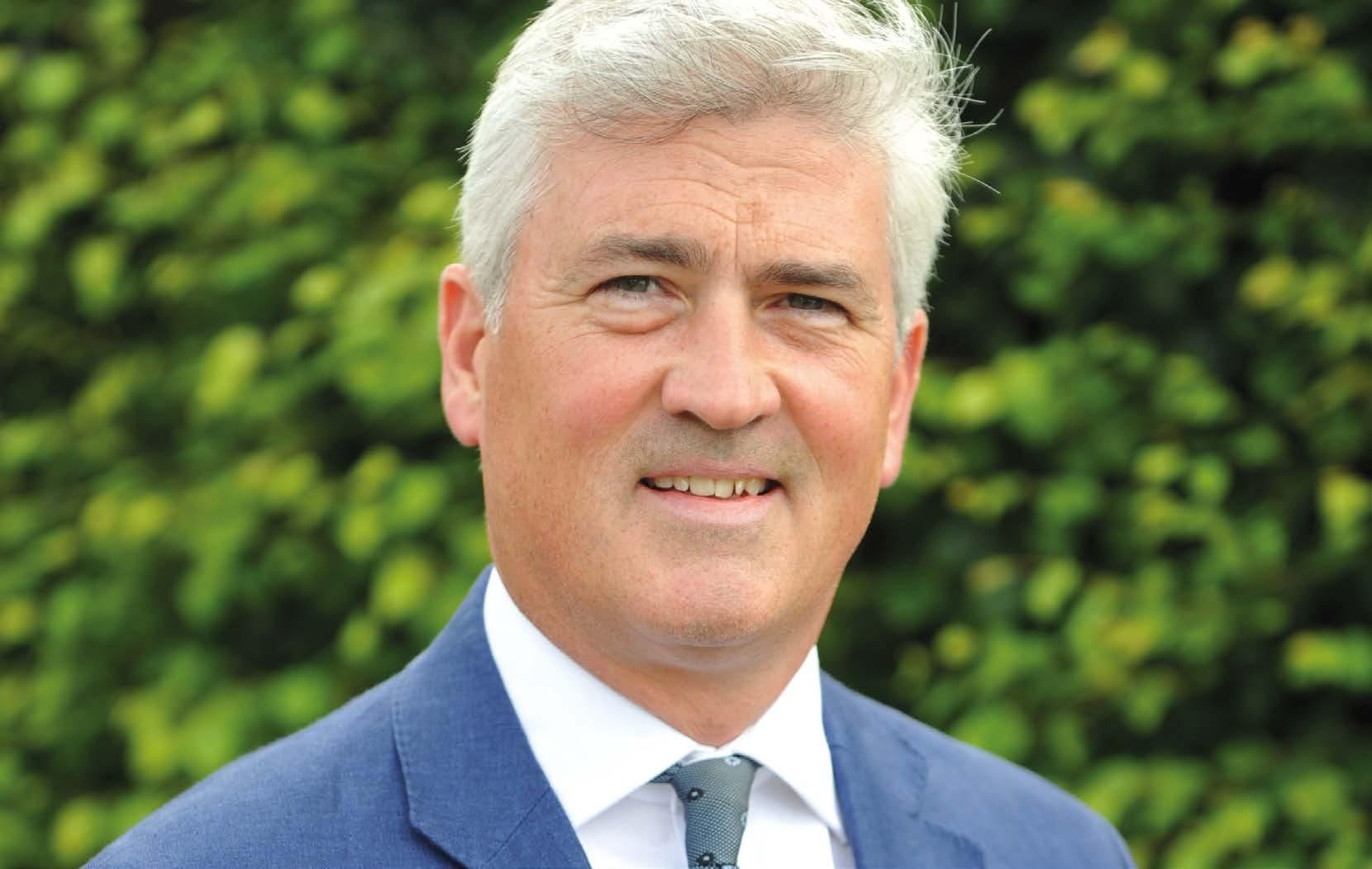
THE SANCTUARY SCHOLARSHIP GAVE ME A PURPOSE IN MY LIFE AND LET ME FIGHT FOR MY EXISTENCE.
Bahara University of Sanctuary Scholar
YOUR GIFTS TAKE US CLOSER TO THE DAY WE CAN BRING OUR PROSTATE CANCER TESTS TO PATIENTS.
Prof Colin Cooper Professor of Cancer Genetics, UEA
OPENED DOORS THAT ALLOWED ME TO DO DIFFERENTLY.
Lesley Williams (ARE87)
UEA Honorary Fellow and Sponsor of The Lesley Williams Masters Scholarship in Nursing
UEA’s philanthropic community enables the University to create pioneering change in the world.
We are harnessing the power of philanthropy to fund and further the University’s groundbreaking work, adding global reach and impact. Together, we tackle the world’s greatest challenges and transform lives.
The funding you provide is put to work on visionary research, education, campus development, student support and much more. Thank you for helping to make a difference.
If you would like to support UEA’s work, please donate online at www.uea.ac.uk/difference
Or, to discuss your gift, please get in touch with the Development, Alumni and Campaigns Office.
Telephone: +44 (0)1603 453704
Email: giving@uea.ac.uk
Development, Alumni and Campaigns Office
University of East Anglia Norwich Research Park
Norwich NR4 7TJ
This publication is printed on FSC certified paper.
The contents of this magazine are protected by copyright belonging to the University of East Anglia and may not be reproduced without permission.
Cover images: (clockwise from top left)
The beautiful UEA campus. UEA Honorary Fellow, Margaret Doggett. Climate change research in the Antarctic. Prof Michael Hornberger, Professor of Applied Dementia Research. UEA is an exempt charity: HMRC reference number XN423.